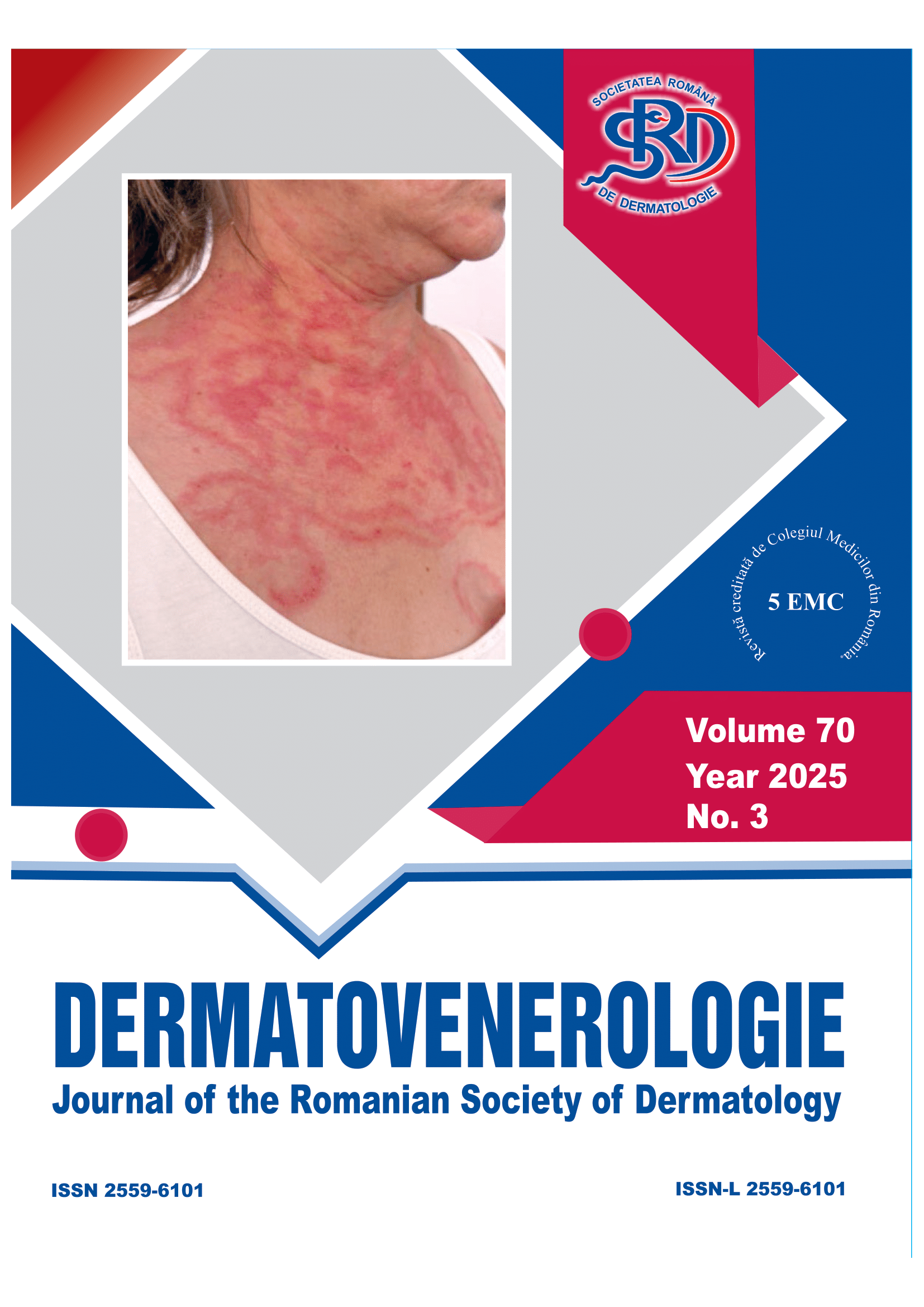Clinical cases
TINEA PSEUDOIMBRICATA: ETIOPATHOGENIC CONSIDERATIONS, CLINICAL IMPLICATIONS AND THERAPEUTIC CHALLENGES
Summary
Tinea pseudoimbricata (TPI) is a rare form of dermatophytosis that mimics classic tinea imbricata (TI) and often occurs in patients improperly treated with topical or systemic corticosteroids which mask and worsens the fungal infection. Diagnosis is based on a thorough anamnesis and careful clinical examination, followed by specific paraclinical investigations. Effective therapy is based on the initiation of adequate antifungal treatment, adapted according to the severity and extent of the lesions. The clinical case presented below supports these theoretical aspects, illustrating a form of TPI with favorable evolution after initiation of correct antifungal therapy and detailed screening of associated comorbidities.


